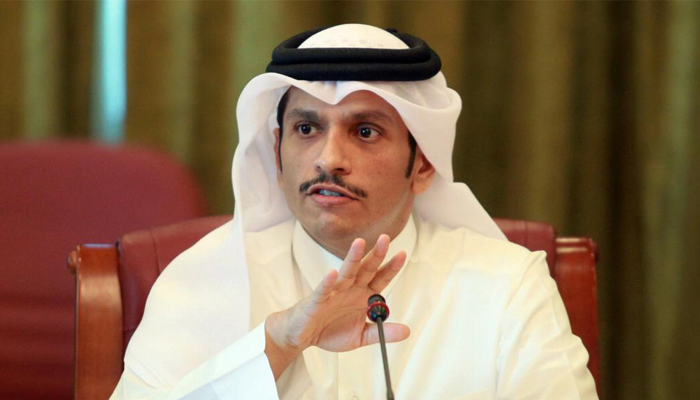Alwaght-The Qatari foreign minister has criticized the US, among other international powers, for adopting one-sided approaches in dealing with the Middle East (West Asia) issues, saying initiatives that excluded Iran and Palestine will yield no result.
In an interview with The Guardian on Tuesday, Sheikh Mohammed bin Abdulrahman Al Thani called on international powers, including the US, to be more inclusive in their approach to the troubled region.
He went on to say that one-sided initiatives that excluded either the Iranians or Palestinians did not work, adding that the Middle East’s polarized and repressive politics would lead to even more instability in the region unless countries take steps to reform and calm tensions.
“Anyone that looks at the situation right now – the polarization in the region – is quite certain that things will not remain like this,” he said.
“You cannot keep people under oppression for a long time, so to prevent this instability from happening, we just want leaders to start reforming. We have to practice preventative diplomacy rather than reactive diplomacy,” Al Thani said.
The top Qatari diplomat further voiced support for the 2015 multilateral Iran nuclear deal, called the Joint Comprehensive Plan of Action (JCPOA), which the US unilaterally abandoned last year.
“Our position on the Iran deal is that, like the Europeans, we support it,” he said. “We do not want a nuclear arms race in our region, and that is the danger.”
He stressed that Qatar’s support for the JCPOA did not mean Doha had now, as some claimed, formed a new axis with Iran and Turkey.
Al Thani further said that the [Persian] Gulf Cooperation Council (P-GCC) needs to reach an understanding with Iran.
“Not just Saudi Arabia and Iran – all of us are living in the same neighborhood and we need to reach an understanding,” he said.
Al Thani said that was the common position of the [Persian] Gulf Cooperation Council countries until 2017, but the boycott changed everything. He was referring to the ongoing Saudi-led blockade against Qatar.
In June 2017, Saudi Arabia, Egypt, Bahrain, and the UAE imposed a land, naval and air blockade on import-dependent Qatar, accusing Doha of supporting terrorism, an allegation strongly denied by Doha.
The Saudi-led bloc presented Qatar with a list of demands and gave it an ultimatum to comply with them or face consequences. Doha, however, refused to meet the demands and stressed that it would not abandon its independent foreign policy.



























